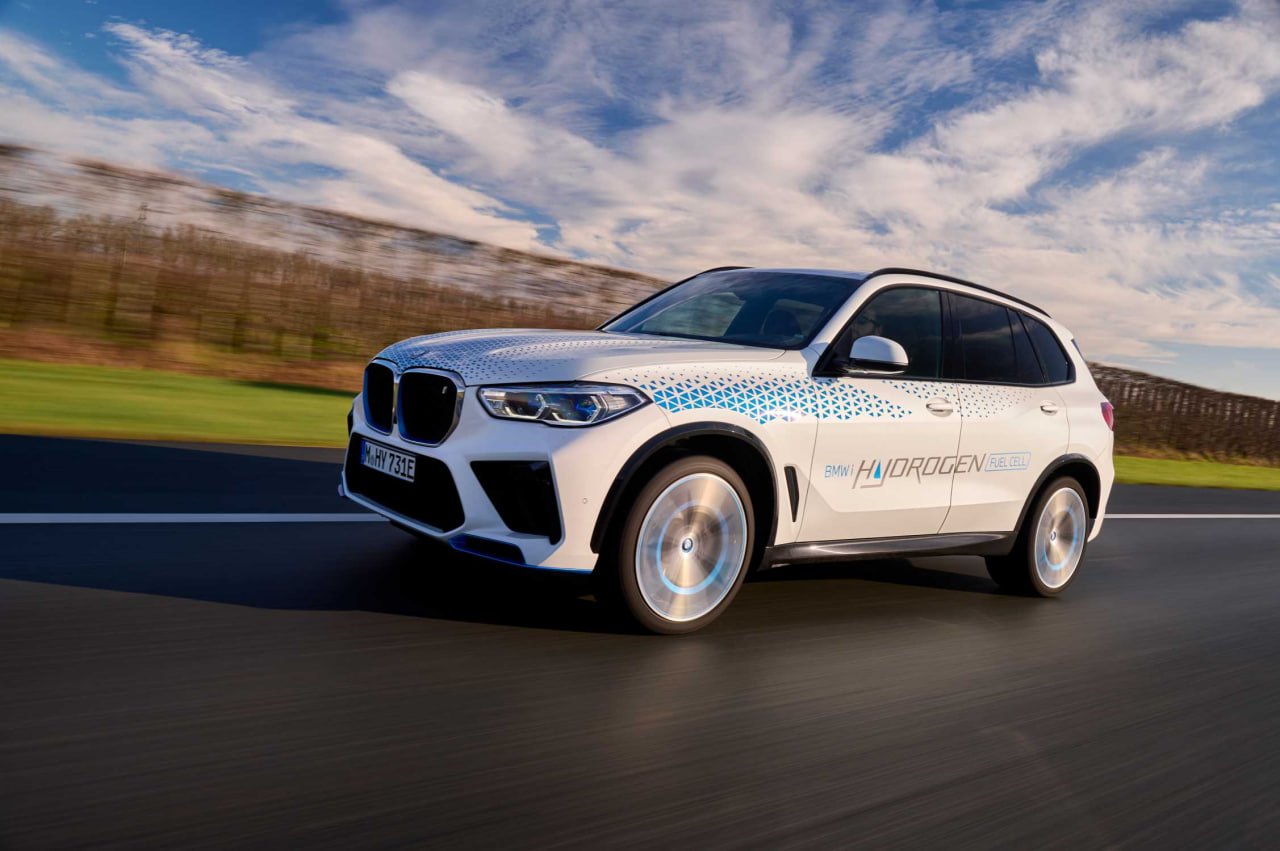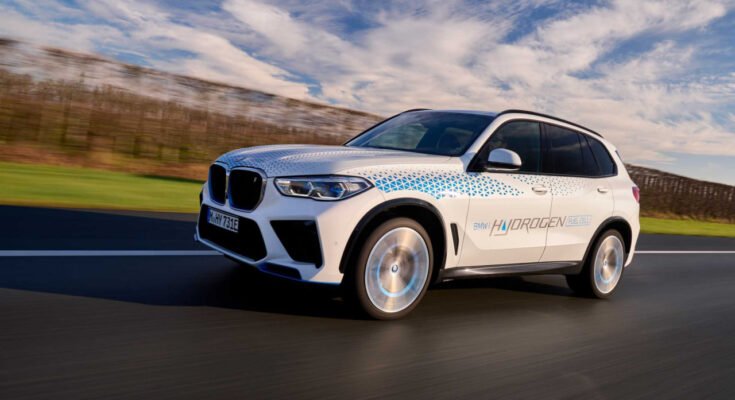Introduction to the BMW iX5 Hydrogen
The BMW iX5 Hydrogen represents a pivotal development in the automotive industry, illustrating BMW’s commitment to sustainable mobility and innovative environmental solutions. As the global automotive landscape increasingly shifts towards eco-friendly alternatives, hydrogen-powered vehicles are emerging as a viable option alongside electric models. The iX5 Hydrogen exemplifies this evolution, showcasing BMW’s dedication to leveraging hydrogen technology to address climate change challenges.
Hydrogen as a fuel source offers several advantages, particularly regarding sustainability. It produces only water vapour as exhaust, significantly reducing air pollutants compared to traditional combustion engines. BMW’s initiative with the iX5 Hydrogen is not merely about making a new vehicle; it is a strategic move to diversify the options available for consumers seeking to minimize their carbon footprint. The introduction of this hydrogen-powered SUV aligns with a broader industry trend that emphasizes the importance of green technologies in the fight against environmental degradation.
By positioning the iX5 Hydrogen within its lineup, BMW aims to appeal to a growing market segment that prioritizes sustainability without sacrificing performance. With advanced features and state-of-the-art technology, the iX5 Hydrogen exemplifies how traditional automakers can innovate while adhering to ecological standards. The vehicle is not just a response to current demands but also a step towards future mobility solutions incorporating renewable energy sources. As hydrogen technology gains traction in the automotive sector, the impact of the BMW iX5 Hydrogen may extend beyond consumer preferences, influencing industry standards and paving the way for a more sustainable future.
Performance and Technology Features
The 2024 BMW iX5 Hydrogen represents a significant advancement in integrating performance and technology within hydrogen fuel cell vehicles. At the core of the iX5 Hydrogen is its innovative hydrogen fuel cell system, which generates electricity through a chemical reaction between hydrogen and oxygen. This system can produce a robust power output, ensuring that drivers experience the capabilities typically associated with traditional combustion engines. Furthermore, the efficiency of the hydrogen fuel cell allows for a more extended driving range, making it a competitive alternative to both conventional and electric vehicles.
In terms of design, the iX5 Hydrogen maintains the luxurious aesthetics that BMW is known for, combined with aerodynamic enhancements that optimize performance. The vehicle is equipped with a lightweight structure that contributes to its agility and improves energy efficiency. The precise engineering behind the iX5 Hydrogen allows it to seamlessly combine power with sustainability, delivering an engaging driving experience that is both eco-friendly and exhilarating.
Inside, the BMW iX5 Hydrogen offers a plethora of advanced technological features. The infotainment system integrates cutting-edge technologies, ensuring connectivity and convenience. Drivers can expect a user-friendly interface paired with high-resolution displays that provide essential information at a glance. Additionally, including comprehensive driver-assistance technologies enhances safety and peace of mind, reinforcing BMW’s commitment to innovation.
Compared to traditional fuel vehicles and fully electric models, the iX5 Hydrogen showcases its unique position in the market. The hydrogen-powered performance addresses common concerns about range anxiety and charging times and promotes a cleaner driving experience without compromising on the driving pleasure associated with the brand. This positions the BMW iX5 Hydrogen as a strong contender in the evolving automotive landscape focused on sustainable energy solutions.
Sustainability and Environmental Impact
The introduction of hydrogen fuel cell technology in the BMW iX5 Hydrogen signifies a pivotal moment in the automotive industry regarding sustainability and environmental protection. Hydrogen vehicles, such as the iX5, present numerous advantages in significantly reducing carbon emissions compared to traditional gasoline-powered vehicles. While gasoline cars release harmful pollutants and greenhouse gases throughout their operation, hydrogen fuel cells only emit water vapour, creating an environmentally friendly alternative.
Moreover, when considering electric vehicles, hydrogen technology presents some crucial distinctions. While still more sustainable than gasoline, electric cars rely heavily on lithium-ion batteries that notably impact resource depletion. The mining of lithium, cobalt, and nickel, essential elements for creating these batteries, can lead to environmental degradation. In contrast, hydrogen fuel cells have the potential to alleviate such concerns, as hydrogen can be produced from various resources, including water, which is abundantly available.
BMW’s commitment to sustainability goes beyond just implementing hydrogen fuel technology in the iX5. The company aims to utilize renewable energy sources for hydrogen production, which will enhance the green credentials of its fleet. This focus on sustainability is crucial as it dovetails with global efforts to transition towards cleaner energy solutions, contributing to significant emissions reduction on a larger scale.
Hydrogen fuel cell vehicles can play a vital role in redefining energy resources because they can be adopted in sectors beyond personal transportation, including heavy-duty and public transport applications. As such, transitioning to hydrogen technology represents a holistic approach to addressing climate change challenges while also investing in a future where sustainable practices are prioritized. In conclusion, the BMW iX5 Hydrogen exemplifies the brand’s long-term commitment to environmental responsibility and innovation in an evolving energy landscape.
Market Outlook and Consumer Insights
The 2024 BMW iX5 Hydrogen represents a pivotal shift in the automotive landscape, not only for BMW but for the hydrogen-powered vehicle segment as a whole. As the global market transitions towards sustainable alternatives, the acceptance of hydrogen vehicles is influenced by various factors, including economic viability, infrastructure, and consumer sentiment. Analysts predict that the iX5 Hydrogen could capture a significant share of the market, contingent on these variables aligning in favour of hydrogen technology.
Cost remains a significant barrier for potential consumers. Hydrogen vehicles presently incur higher production costs, which can translate into elevated prices at the dealership. However, as technology advances and production scales, the cost structure is expected to improve. Moreover, the long-term savings associated with reduced fuel costs and potential government incentives for environmentally conscious purchases may entice consumers to consider hydrogen a competitive alternative to battery electric vehicles (BEVs).
The development of hydrogen infrastructure is equally critical in determining market penetration. Presently, hydrogen refuelling stations are limited, primarily concentrated in specific regions. As automakers, including BMW, advocate for infrastructure expansion, the widespread adoption of hydrogen vehicles will become more feasible. Partnerships between vehicle manufacturers and energy providers are crucial to creating a reliable network of hydrogen stations, which could significantly enhance consumer confidence.

Consumer sentiment towards environmentally friendly vehicles is another aspect to consider. With increasing awareness of climate change and sustainability, consumers are increasingly interested in low-emission vehicles. Surveys indicate a favourable disposition toward hydrogen technology, particularly when accompanied by informative campaigns elucidating its benefits. In a landscape competitive with BEVs, the iX5 Hydrogen’s unique offering may distinguish it from other vehicles, positioning BMW favourably in the evolving sustainable automotive market.
Overall, the market outlook for the 2024 BMW iX5 Hydrogen is promising, contingent on economic factors, infrastructure development, and growing consumer acceptance. BMW’s strategic focus on hydrogen will enhance its product offerings and solidify its role as a leader in the future of sustainable mobility.


